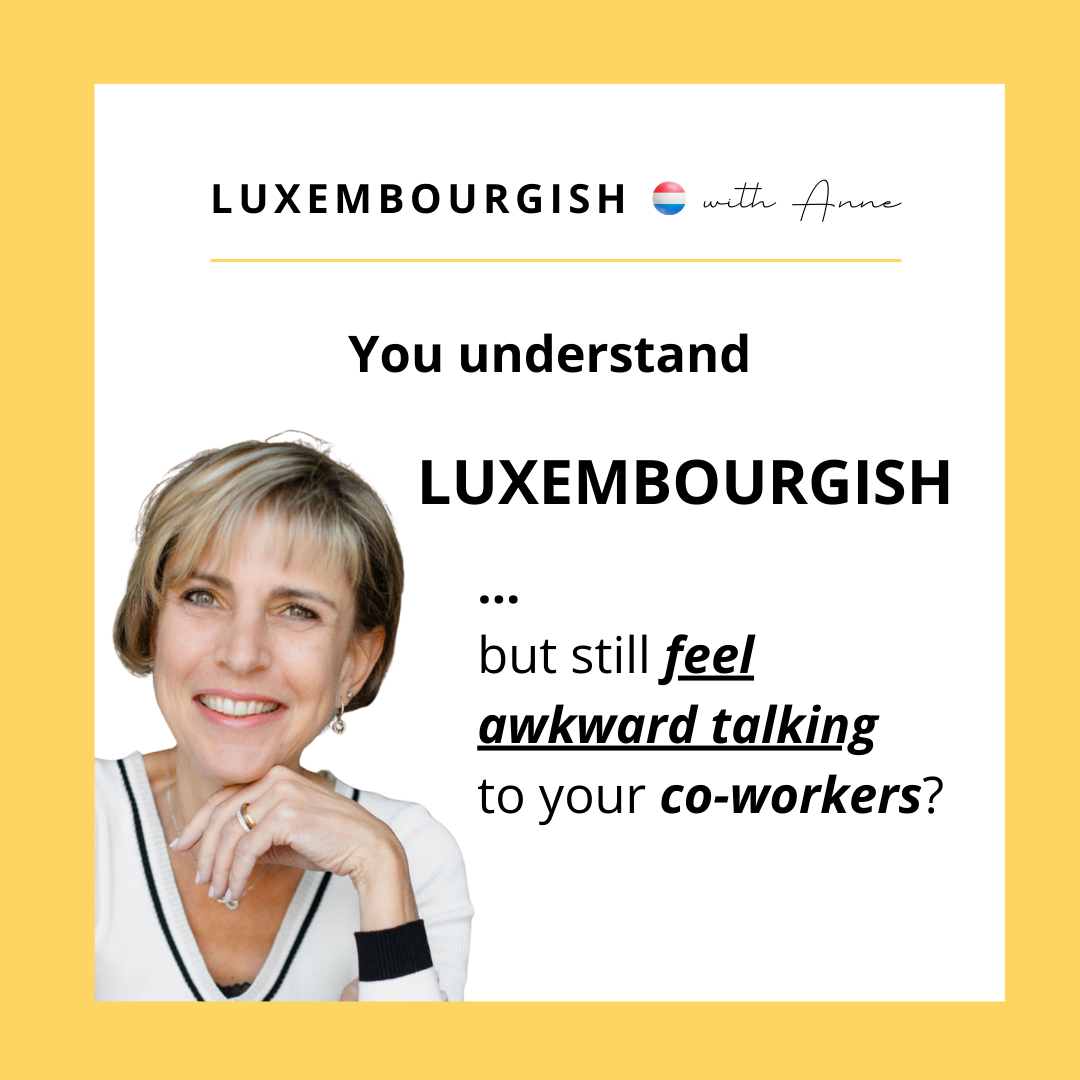💡 Stop stumbling over “my” and “her” in Luxembourgish!
In today’s episode I break down possessive pronouns step by step, with clear explanations.
You’ll discover what possessive pronouns are, learn the main forms in the nominative case, and get plenty of practice using them in simple sentences about your family and daily life.
Being able to say mäi Brudder, meng Schwëster, säi Kand, hir Famill might seem small, but it makes a huge difference in conversations – whether you’re introducing your family, talking about colleagues, or describing what belongs to whom.
👉 Master these pronouns and boost your confidence in Luxembourgish!

What are Luxembourgish Possessive Adjectives
Meng and mäin are translated into English by my. Mäin and meng are possessive adjectives and they refer to nouns they belong to, hence the word possessive.
When you’re considering which possessive adjective to use and how to use it, there are three factors to bear in mind:
1. Know which adjective you need
There are 7 possessive adjectives in Luxembourgish you should know. Once you’re familiar with those, you should have no trouble translating your English into the correct Luxembourgish word.
2. Get the noun gender right
In Luxembourgish, nouns are classed as being either masculine, feminine or neuter. The gender of nouns also affects possessive articles. Just like definite articles, possessive articles will change as follows.
Zum Beispill – for example:
de Mann is masculine , so we have to say mäi(n) Mann for my husband.
d’ Mamm is feminine, so we have to say meng Mamm for my mother.
d’ Kand is neuter, so we have to say mäi Kand for my child.
d’ Elteren is plural, so we have to say meng Elteren for my parents.
Note that mäin is subject to the n-rule. Remember that the final n of a word is dropped if the following word doesn’t start with a vowel or d,n,t,h,z. Therefore you must say and write mäi Kand.
Person | Masculine/Neuter | Feminine/Plural |
|---|---|---|
ech (I) | mäin | meng |
du (you) | däin | deng |
hien (he) | säin | seng |
hatt (she)* | säin | seng |
mir (we) | eisen/eist | eis |
dir (you, pl./formal) | ären/äert | är |
si (they) | hiren/hiert | hir |
* she formal is si: hieren/hiert/hir
3. Check your cases!
There’s another factor that could require you to change the ending of your possessive adjective—the sentence case. But I think this is enough for this lesson and I’ll explain this in another episode .

Beispiller - Examples
For the examples, I’ll take the following words:
Neutral word: d’Kand
Masculine word: de Brudder
Feminine word: d’Schwëster
Plural word: d’Noperen
Ech
- Mäi Brudder ass 10 Joer al. – My brother is 10 years old.
- Meng Schwëster wunnt an der Stad. – My sister lives in Luxembourg city.
- Meng Nopere schwätzen e bëssen Englesch. – My parents speak a little English.
Du
- Däi Brudder schafft vill. – Your brother works a lot.
- Wéi all ass deng Schwëster? How old is your sister?
- Wéi heescht däi Kand? – How is your child called?
Hien/Hatt
- Säi Brudder ass pensionéiert. – His father is retired.
- Seng Schwëster wunnt zu Lëtzebuerg. Her sister lives in Luxembourg
- Säi Kand huet 5 Joer. His child is 5 years old.
Mir
- Eist Kand heescht Sara. – Our child is called Sara.
- Eis Noperen hunn e groussen Hond. – Our neighbours have a big dog.
Dir
- Äre Brudder schwätzt perfekt Däitsch. – Your brother speaks perfect German.
- Äert Kand heescht Sara. – Your child is called Sara.
- Hunn Är Noperen e groussen Hond? Do your neighbours have a big dog.
Si
- Hiert Kand ass jonk. – Their child is young
- Hunn hir Noperen e groussen Hond? – Do their neighbours have a big dog.
Today we’ve covered the basics of Luxembourgish possessive pronouns—use ‘mäi’, ‘meng’, ‘däi’, and ‘deng’ to better describe your family and with confidence. In an next episode you’ll learn when to say menger, dengem – the possessives in the dative case
With these possessive pronouns under your belt, you’ve already taken the first step toward mastering Luxembourgish. Imagine how much more confident you’ll feel when you can but also introduce yourself, handle daily situations, and connect with people in Luxembourg.
Our A1 Foundation course is designed to get you there in just 8 weeks. It’s a self-study online program that gives you the structure, vocabulary, and practice you need to build real confidence from the very beginning.
👉 Don’t stop here — take the momentum you’ve built today and turn it into real progress. Start your Luxembourgish journey now and master the basics step by step with us: https://luxembourgishwithanne.lu/a1-self-study-course/




